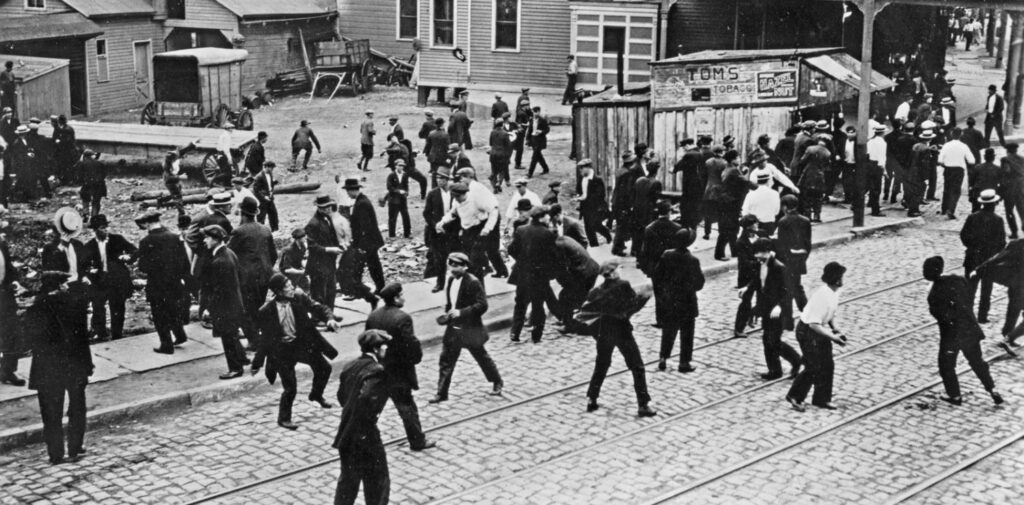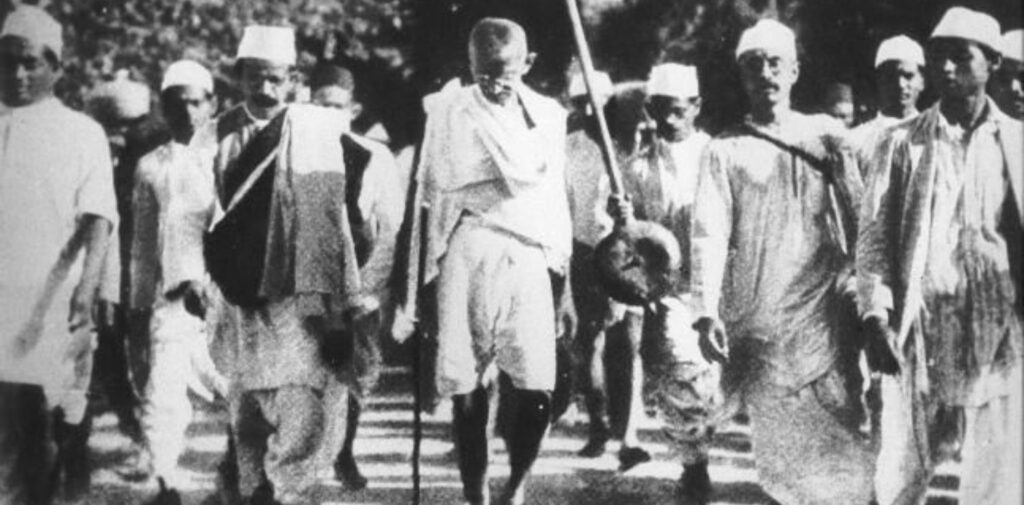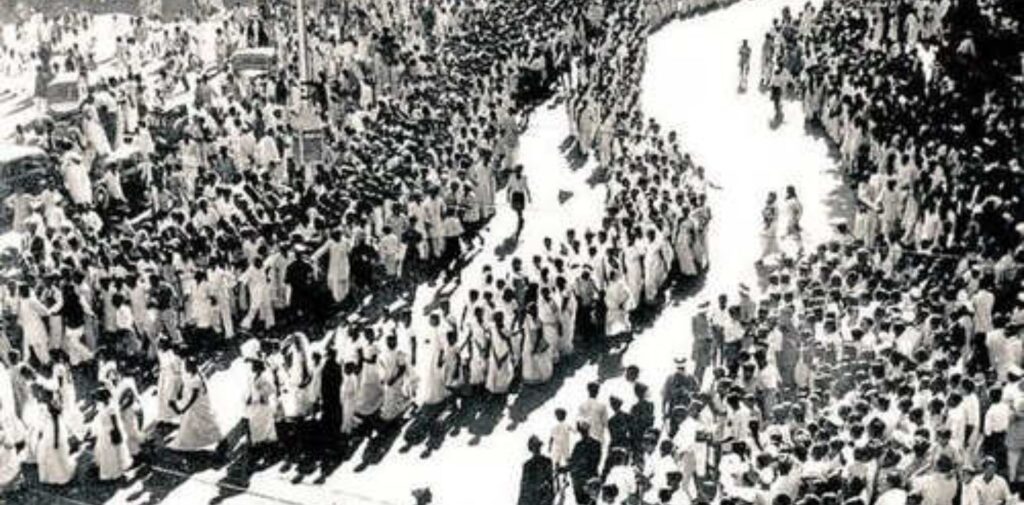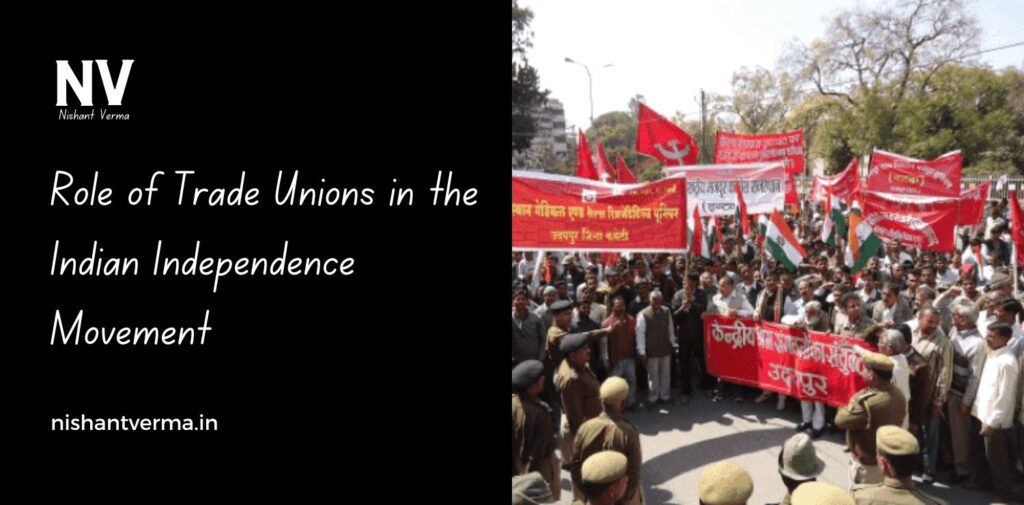India’s struggle for independence was a long and difficult journey. Many different groups of people, from farmers to students, played a part in this fight. One group that played a significant role in this struggle was the Trade Unions. These unions made up of workers who came together to fight for their rights, contributed a lot to the fight against British rule. In this article, we will explore the role of trade unions in the Indian independence movement in a way that is easy to understand.
What are Trade Unions?
Before we dive into the role of trade unions in India’s freedom struggle, let’s first understand what they are. A trade union is an organization of workers who join together to protect their rights and improve their working conditions. Workers in factories, mines, and other industries form these unions to fight for better wages, better working hours, and safer working conditions.
In India, during the time of British rule, many workers were treated unfairly. They were made to work for long hours, often in dangerous conditions, and were paid very little. This made workers unhappy and led them to form trade unions to demand better treatment.

The Beginning of Trade Unions in India
The first trade union in India was formed in the late 19th century. However, the movement grew stronger in the early 20th century. Workers in factories, railways, and other industries began to form unions to voice their concerns. During this time, India was still under British rule, and many workers faced unfair treatment. The British government cared more about profits than the well-being of Indian workers.
How Trade Unions Got Involved in the Freedom Movement
As the trade unions grew, they became more aware of the larger political struggle for independence. The workers started to realize that their fight for better wages and working conditions was connected to the bigger fight for freedom from British rule. Many of the leaders of the trade unions were also leaders in the freedom struggle.
The workers understood that the British government was taking away not only their rights but also the country’s resources. Many workers felt that India would never become truly free unless they fought against British rule. So, they joined hands with freedom fighters and became an important part of the independence movement.

Key Contributions of Trade Unions to the Independence Struggle
- Organizing Strikes and Protests: One of the most important ways in which trade unions contributed to the independence movement was by organizing strikes and protests. A strike is when workers refuse to work to demand better conditions or pay. Workers in different parts of India went on strike, disrupting British-run industries. These strikes were a powerful way to show the British that the workers were united and strong. For example, in the early 20th century, workers in the textile mills of Ahmedabad, coal mines in Bengal, and railway workers in Bombay went on strike. These strikes helped spread the message of unity and resistance to British rule.
- Supporting the Non-Cooperation Movement: The Non-Cooperation Movement, led by Mahatma Gandhi in the 1920s, was a major part of India’s freedom struggle. This movement aimed to make the British feel the impact of India’s refusal to cooperate with their rule. Many trade unions supported this movement by encouraging workers to boycott British goods and services. Workers also took part in protests, marches, and other activities organized by Gandhi and other freedom fighters. By doing so, they helped spread the message of independence among the masses and showed that workers, too, were committed to the cause.
- Fighting for Workers’ Rights: While the trade unions were fighting for India’s freedom, they were also fighting for the rights of Indian workers. They wanted better pay, shorter working hours, and safer working conditions. Many workers felt that they would never get justice from the British government. Therefore, they believed that getting rid of British rule was the first step toward achieving better working conditions. The trade unions led by leaders like Lala Lajpat Rai, Jawaharlal Nehru, and Subhas Chandra Bose also played a role in raising awareness about the problems faced by Indian workers. Their efforts led to the passing of laws that improved the lives of workers.
- Participation in the Quit India Movement: The Quit India Movement, launched by Mahatma Gandhi in 1942, was a mass protest that demanded the British leave India. This movement brought together people from all walks of life, including workers, farmers, and students. Trade unions played a crucial role in this movement. Many workers went on strike to support the Quit India Movement. They organized protests and made sure that their voices were heard. The British government tried to suppress these protests, but the workers continued to resist. The courage and determination of the workers during the Quit India Movement made a big impact on the overall struggle for independence.
- Strengthening the Unity of Workers: One of the most important roles played by trade unions was in creating unity among workers from different regions and backgrounds. The Indian independence struggle was not only about fighting the British but also about bringing people together. The trade unions brought together workers from different industries, including those from the cities and rural areas. This unity helped the freedom movement grow stronger and reach more people. The workers’ involvement in the movement showed the British that the Indian people were united and ready to fight for their freedom. The British could no longer ignore the demands of the Indian people, especially the workers who were a major part of the economy.
Some Important Trade Union Leaders in the Freedom Struggle
- Lala Lajpat Rai: Lala Lajpat Rai was a well-known leader who supported the workers’ rights movement. He was also deeply involved in the freedom struggle. Rai believed that improving the lives of workers was important for the country’s overall progress. He led many protests and strikes to demand better treatment for Indian workers.
- Jawaharlal Nehru: Nehru, who later became India’s first Prime Minister, was an important leader in the workers’ movement. He understood the connection between workers’ rights and the freedom struggle. He worked closely with trade unions to fight for the rights of workers.
- Subhas Chandra Bose: Subhas Chandra Bose was another leader who supported the workers. He believed that the Indian workers were key to India’s independence and worked with them to organize strikes and protests.
- V. B. Deshmukh: V. B. Deshmukh was an important trade union leader from Bombay who played a key role in organizing workers in the textile industry. His efforts helped spread the message of the independence movement among the workers.

Legacy of Trade Unions in India
The role of trade unions in India’s independence movement had a lasting impact. They not only contributed to the fight for freedom but also laid the foundation for workers’ rights in the country. After independence, many of the rights fought for by trade unions were written into the Constitution of India.
Today, workers in India still benefit from the struggles and sacrifices made by the workers during the freedom struggle. The legacy of their involvement in the independence movement is a reminder that even the most ordinary people can contribute to the greatest of causes.
Conclusion: Role of Trade Unions
In conclusion, trade unions played an essential and often overlooked role in India’s independence movement. Through strikes, protests, and their support for freedom movements, workers showed their determination to fight against British rule. They not only fought for better working conditions but also for the larger cause of India’s freedom. The efforts of trade unions remind us that the path to freedom was not easy, and many different groups of people, including the working class, played a vital role in making India independent.




